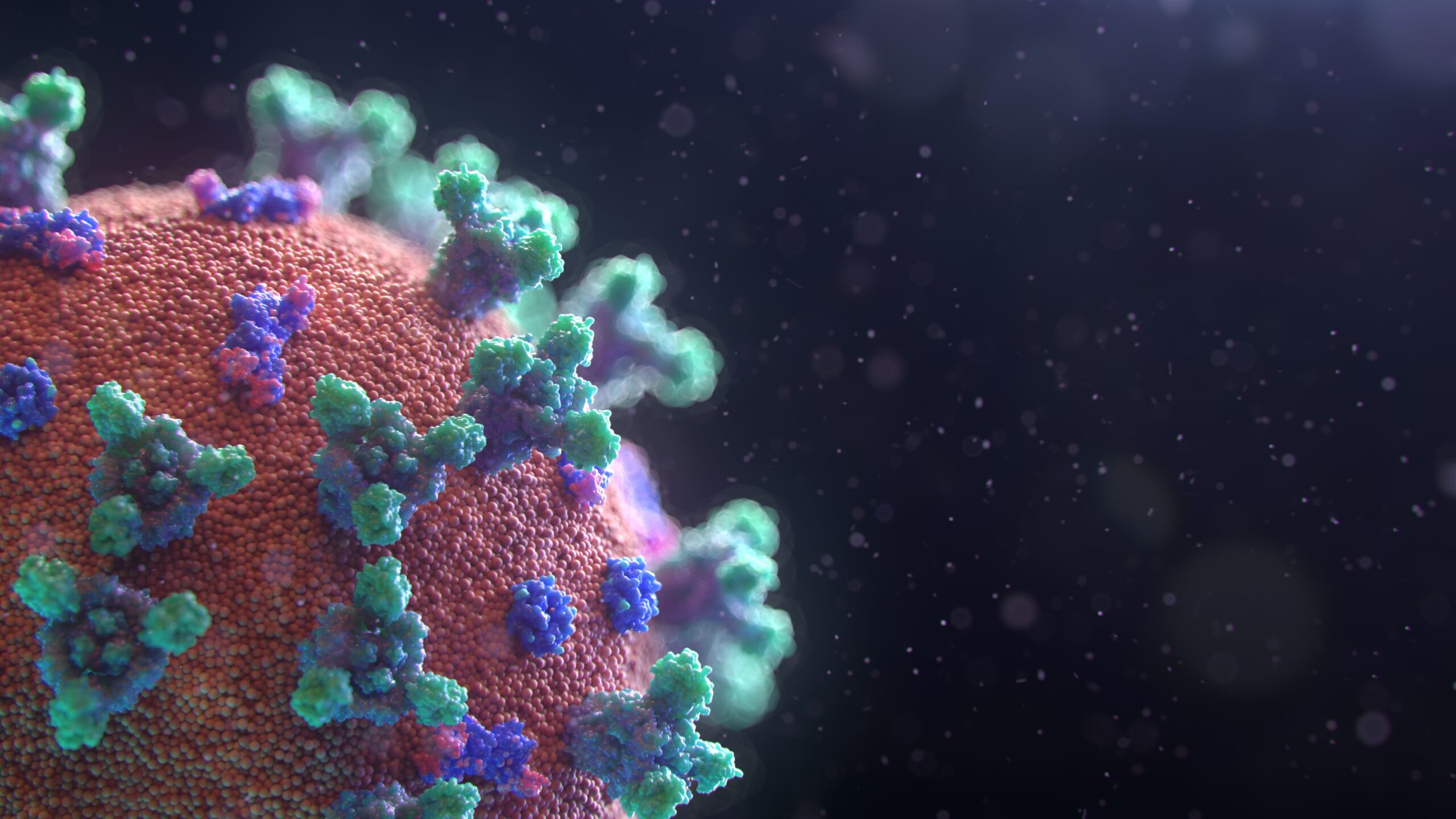USF experts predict peak in COVID-19 cases by February

Not even a pandemic was able to prevent large crowds from gathering this holiday season, posing a risk of promoting an even larger surge in the number of daily cases in the upcoming weeks, according to USF Health experts.
As a result of holiday gatherings and travel, experts at the College of Public Health believe February will bring a major peak in cases. USF Health Morsani College of Medicine Dean Charles Lockwood hopes timely vaccination will ease these projections.
“The Thanksgiving holiday lived up to expectations, unfortunately, and I have pretty strong inclinations that the Christmas holiday will too,” said Lockwood. “Our modeling at the College of Public Health suggests that we probably will see a peak sometime in February [accounting for variables].”
The predictions are showing that the peak will happen in February because the virus is taking up to 10 weeks to reach some people as it passes from person to person, public health professor and Senior Associate Dean of the Morsani College of Medicine Jay Wolfson said.
“When people transmit it, 40% of the people who get it don’t know they have it. … When young, healthy people get the disease, they often times don’t show any symptoms whatsoever or very mild symptoms, and then they continue to hang out with their friends,” said Wolfson. “That’s the next generation of passing it on and that could go on for two or three or four generations, passing it on to other people, and that can take two, three, four, six weeks of generation.
“We’re seeing the hospitalization rates increase, we’re seeing the ICU rates increase, and it’s a lag from three, six weeks, even 10 weeks ago, based on those generations of passing it on and based on what’s happened just these past two weeks, that trend is spiraling upward, so that by the end of this month we can expect thousands of cases a day just in the Tampa Bay area. And that’s likely going to last until the end of February.”
Lockwood believes a vaccine will ease case progression, but only if rollout can be performed in a timely manner.
“If we can increase the rate of vaccination and increase, even by 10%, the usage of face masks and social distancing, the peak will occur earlier in February, around Feb. 8, and at a much lower level,” said Lockwood.
“We’re in for about another month of very serious accelerating rates of infection, but then a fairly fast dropoff because of vaccination. If we do not increase vaccination rates or improve our use of social distancing and face masks, it will occur later, around Feb. 28 and be potentially twice as bad.”
Edwin Michael, an epidemiologist at USF Health, also expects February to highlight the apex of positive cases as a result of holiday gatherings and travel.
“Just over Christmas, things calm down, then post-Christmas things begin to start picking up, which is what we always expected,” said Michael.
Michael has conducted research simulating future COVID-19 forecasts based on previous data and predictions, which project a February peak.
“A wave [is predicted to] peak around the end of February, first of March,” said Michael. “With current social measures [in place] it’ll lead to around 18,000 cases at the peak. If the vaccination rates are increased in addition to the social measures, it will result in 14,000 cases at the peak … and without the vaccines, we would hit 20,000 confirmed cases.”
Hillsborough County reported 85,855 confirmed cases as of Jan. 10, and an estimated 1,119 fatalities, according to Hillsborough County’s COVID-19 Data Dashboard. On Dec. 31 alone, 1,570 new cases were reported, marking it as the county’s highest recorded cases in one day.
The average number of cases in Hillsborough County rose 30.55% from Nov. 28 to Jan. 3, according to the Centers for Disease Control and Prevention.
“We’re looking at setting records in the state of Florida for the highest number of cases in a single day,” said associate professor in the College of Public Health Jill Roberts.
On the last day of 2020, Florida reported 21,012 coronavirus cases, the highest daily number of cases recorded in the state since the start of the pandemic, according to the Florida Department of Health.
While the rise in the number of COVID-19 cases could be attributed to increased testing, Roberts said it is not the only factor.
“We can actually do the statistics and figure out that it’s not more testing that’s causing [increased positive cases], it’s truly more cases, and this was always expected,” said Roberts.
These numbers may mark the beginning of trend surges following mass holiday travel, according to Roberts.
“This time of year is the perfect storm, because we have a respiratory-spread virus, which can spread more easily when people are inside. So adding to that, a significant amount of travel [for many reasons including just the holiday season].”
The case count could potentially increase as students return to campus after the holidays.
As of Jan. 10, USF reported 851 cases since the first day of fall classes in August. Of the total reported cases, 713 have been from students while 138 were from faculty and staff.
Despite the surge in the number of cases, Roberts is optimistic that advances in testing and vaccine rollout will lead to greater control over the pandemic.
“If you look at the fall semester, the rates of positives on campus were actually lower than in the surrounding communities — so we were doing something right,” said Roberts.
In order to maintain this trend into the spring semester, Roberts said students must continue practicing COVID-19 safety measures.
“Students have to be very proactive, and [not be afraid] to say something to their friends who are not following procedures,” said Roberts.







